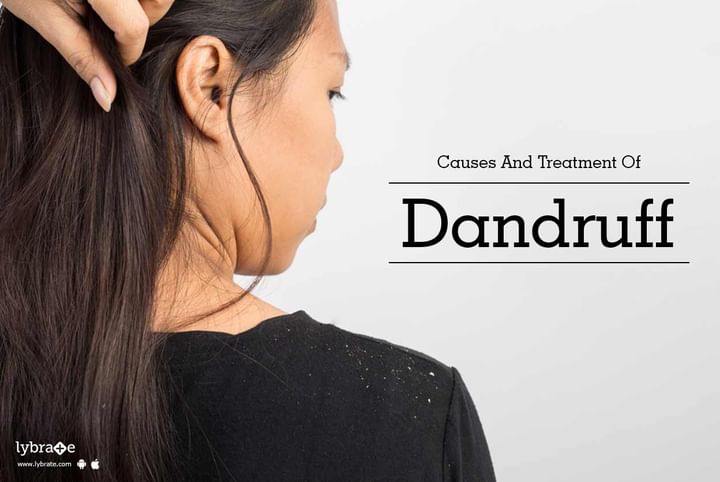Causes And Treatment Of Dandruff
Dandruff is caused by the shedding of skin cells from the scalp. As the cells die, a small amount of flaking is normal, but when the flaking increases it causes dandruff. It is characterized by itchiness and flakes of skin on clothing or on hair. It is mostly a cause of embarrassment but may also indicate underlying conditions within the body which may need to be corrected.
What Causes Dandruff?
-
Not combing hair regularly– People who don’t brush or comb their hair regularly are more susceptible to developing dandruff. It is advised that you comb your hair at least 3 to 4 times daily as it will displace the skin cells and stop them from accumulating into large shedding of flakes.
-
Yeast can also cause dandruff– People who are sensitive to yeast, can sense an increase of dandruff during the winters. During the winters the skin tends to get drier and this makes dandruff more likely to occur. This yeast is a normal part of the fungi that lives in your hair, but with drier conditions tends to flourish and thus cause dandruff.
-
Naturally dry skin- Dry skin also contributes to dandruff formation. When people with dry skin sit in an air conditioned room, dandruff formation increases.
-
Seborrheic dermatitis (oily and irritated skin)- This affects the skin of the scalp, eyebrows, back of the ears, breastbone and the side of the nose. People who suffer from seborrheic dermatitis have greasy red skin covered with white and yellow scales. These scales may fall off and thus cause dandruff.
-
Not Washing your hair– Not shampooing regularly can also cause dandruff due to buildup of dead skin and oil.
Treatment of Dandruff:
-
Shampoo your scalp regularly with an anti-dandruff shampoo- Seborrheic dermatitis cannot be cured but it can be controlled over time. Use an anti- dandruff shampoo which contains zinc, selenium sulphide, and salicylic acids. Much of the normal dandruff is cleared by using proper shampoo at regular intervals.
-
Use tea tree oil- Tea tree oil has been used for ages as an antiseptic and an antibiotic. Some people are allergic to it, so precaution should be taken before using it by testing it on a small area of skin on your hands. However, it has been shown to be very effective in combating the development of dandruff when used as topical oil on the scalp.
-
Green tea- Drinking a cup of green tea two to three times a day can also reduce dandruff. Green tea has many herbal properties which are meant to treat psoriasis and dandruff. Washing your hair with green tea bags can also help control dandruff.
- Home remedies- Rubbing baking soda on a wet scalp has been claimed to reduce dandruff among many such other home remedies. However, it is best to consult your dermatologist before undertaking any of these methods.



+1.svg)
